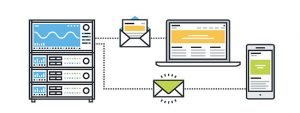In this new age of digital business, having a network which is not able to perform well can result in massive losses for your company. The computers, software, servers, and systems that compose your IT infrastructure is the central nervous system to your business. Just like our bodies, this central nervous system is essential to proper function. Ignoring it can lead to damaging side effects. Here are some ways in which your network’s poor performance costs you money:
1. Loss of Productivity
When your business is not running efficiently, you are losing money. Nothing can bring the productivity of your operations to a screaming halt faster than an under-performing network. Computers and printers that do not function properly, slow internet connection, phones that cut out, and software that doesn’t seem to work like it used to are all common issues that hurt your productivity and cost you money. Some simple upgrades and re-configurations can make a world of difference. Though, sometimes new systems will need to be created. This will require a time commitment up front, but it can lead to increased productivity and financial gains in the long run.
2. Poor Reputation
Finding customers and keeping them happy is what we all want for our businesses. A bad customer experience can lead to a negative review, and enough of those can lead to a poor reputation. Communication is often the culprit for a bad customer experience. This goes for both the internal communications you depend on to operate your business as well as the communication with the customer themselves. Making sure that your communication processes are sound and efficient as possible will minimize bad customer experiences and allow you to best handle them when they do happen.
3. Breach of Information
There is a lot of sensitive information available on company servers relating to clients and their sales history. If network security measures are not up to the mark or if there are some other inadequacies within the network, then all of the information may be exposed and vulnerable to the wrong parties. In turn it may be exploited by hackers and malware. Be certain that the sensitive data you collect about the customers doing business with you and the employees that work for you is safe and secure.
4. Staying Competitive
Keeping pace with the competition is the bare minimum you need for any sustainable business model. Take a look at your industry and see what advances have been made in technology. Have your competitors began using new software that gives them a distinct edge? Is there equipment available that will increase productivity and put you ahead? Is your current network performance preventing your team from being as productive as they can be?
5. No Room for Expansion
A poor network setup means the system is not equipped to handle current daily operations and definitely will not be optimal for company expansions. If you need to increase product/service offerings or open an additional location, then that will require a more robust network or perhaps even more than one network. Any type of expansion will quickly identify weaknesses in your infrastructure, and as such, it is best to address these during the planning phase.
There are two sides to this coin. Your network can make you money or cost you money. The difference between the two is having the right IT partner to help you identify where you can improve. They will help you identify the problems and aid you in determining a solution to it. Investing some time in a simple network evaluation can go a very long way. For more assistance on this subject, contact Computer Works today.

